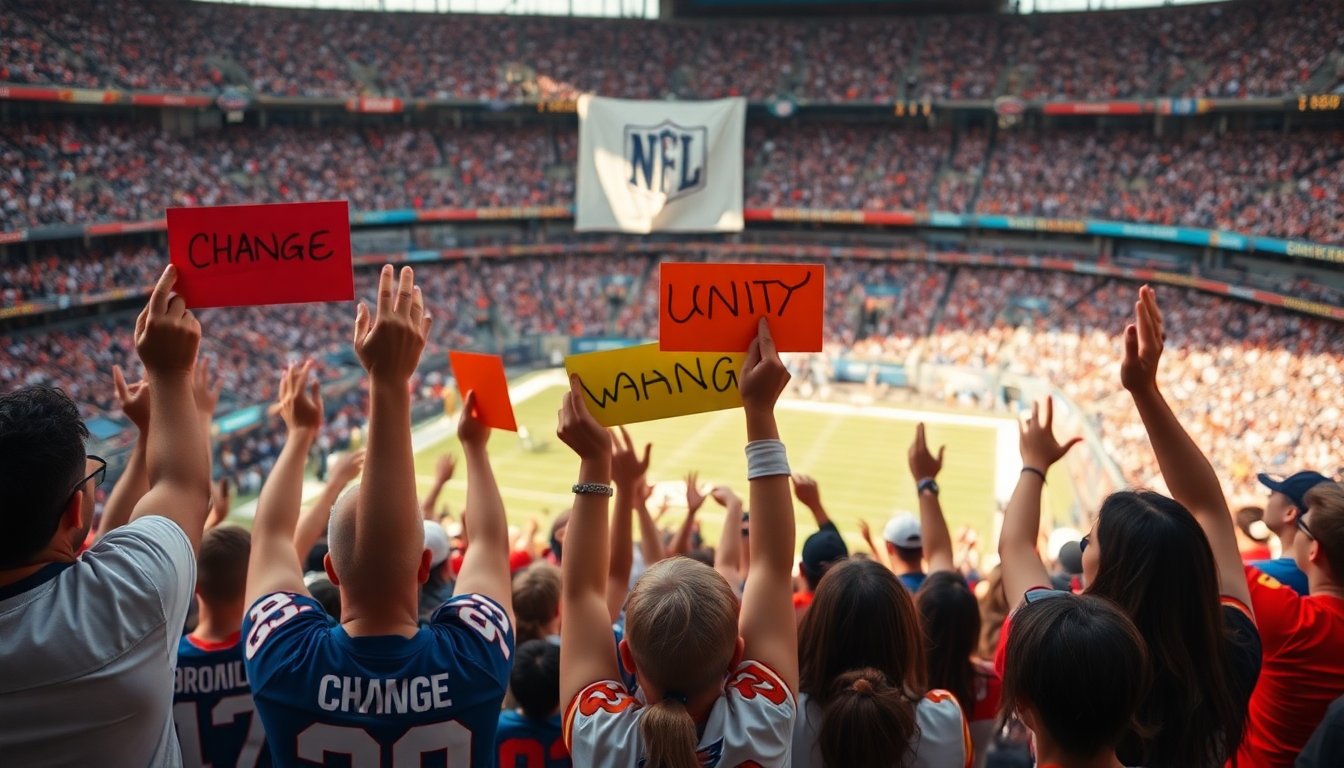Table of Contents
The National Football League (NFL) has emerged as a significant platform for both sports and social activism. In 2020, the league introduced slogans such as “End Racism” to address critical societal issues amidst heightened racial tensions. However, as the NFL progresses, a debate has surfaced regarding the effectiveness of these messages in fostering true unity among its diverse fan base. Recently, former NFL star Brett Favre expressed concerns, suggesting that instead of bridging divides, these slogans may inadvertently deepen them.
Historical Context of NFL’s Messaging Initiatives
The NFL’s foray into social activism gained momentum following the Black Lives Matter movement and ongoing discussions about racial equality. The initiative to paint slogans in end zones was perceived as a commitment to acknowledge systemic issues within society. For a league that attracts millions of fans from diverse backgrounds, this move was both bold and necessary. Yet, it raised questions about the balance between activism and the essence of sportsmanship.
As the league maneuvered through this landscape, it became clear that while the messages were well-intentioned, they did not receive universal acceptance. Favre’s comments reflect a growing sentiment among some fans and players who believe these slogans may create more division than unity. He argues that recognizing racism is essential, but continuously discussing it in a manner that emphasizes division can be counterproductive. Instead, he advocates for a focus on unity and the progress made in overcoming these issues.
The Evolution of Slogans and Their Reception
In the latest season, the NFL shifted from the prominent “End Racism” slogan to alternatives such as “Choose Love” and “It Takes All Of Us”, featured during high-profile games, including the Super Bowl. This transition reflects an attempt to broaden the conversation surrounding unity and embrace a more inclusive message. However, this change has not resolved the ongoing debate regarding the league’s approach to social issues.
Critics contend that merely changing slogans does not address the deeper societal divisions. They argue that while the intention may be to foster togetherness, divisive conversations still prevail. Favre’s perspective highlights a critical point: actions speak louder than words. A focus on collective achievements rather than merely highlighting problems could lead to a more significant impact.
Implications for the Future of Sports and Activism
The ramifications of these discussions extend beyond the football field. As sports leagues increasingly engage with social issues, they must consider the potential consequences of their messaging. The NFL’s efforts exemplify a broader trend where sports serve as a platform for societal change, yet they risk alienating segments of their audience if not approached thoughtfully.
Looking ahead, it will be crucial for organizations like the NFL to strike a balance between acknowledging societal issues and promoting messages that resonate with a diverse audience. The key may lie in fostering genuine dialogue and emphasizing shared values over divisive narratives. As the league navigates these complex waters, the importance of thoughtful, inclusive messaging will only become more pronounced.


